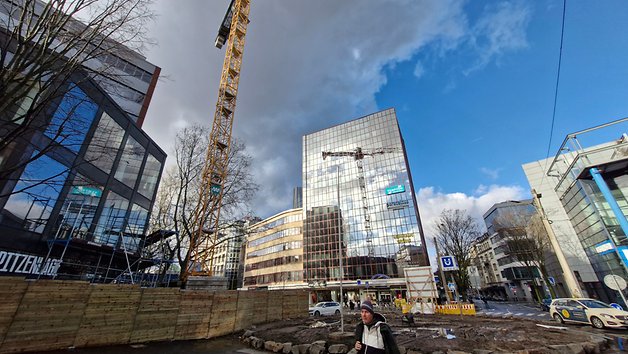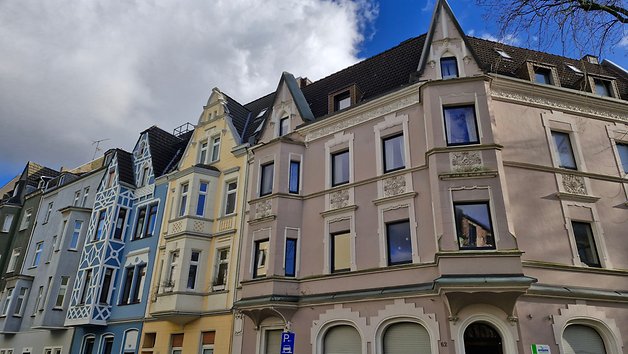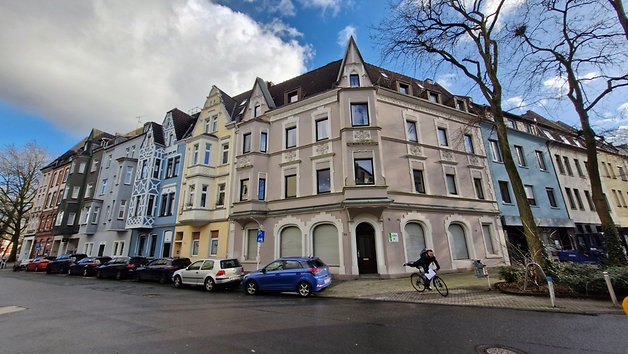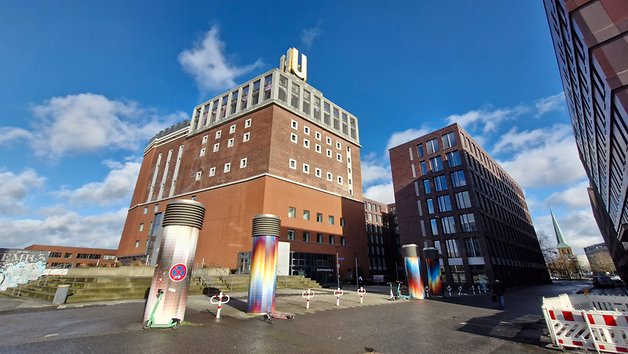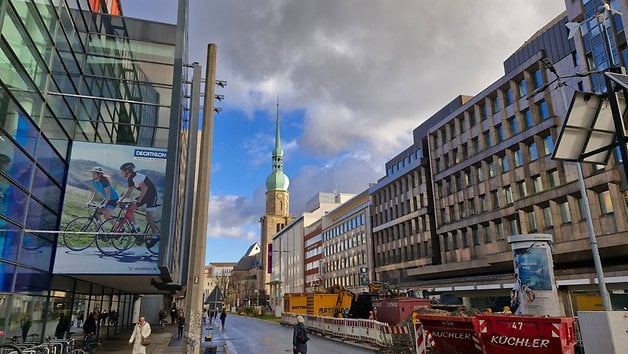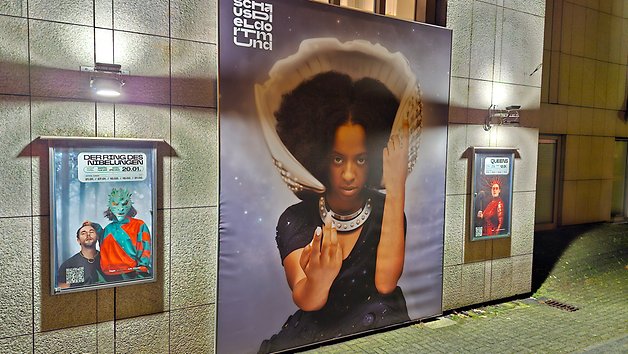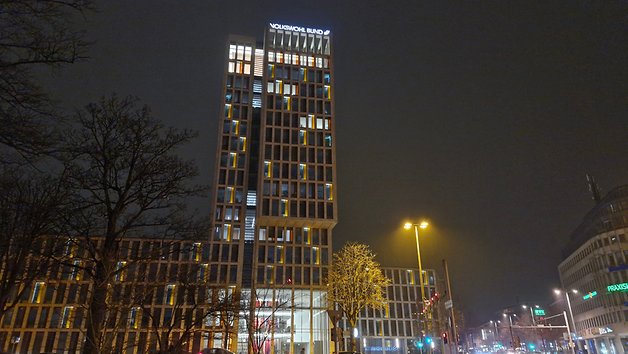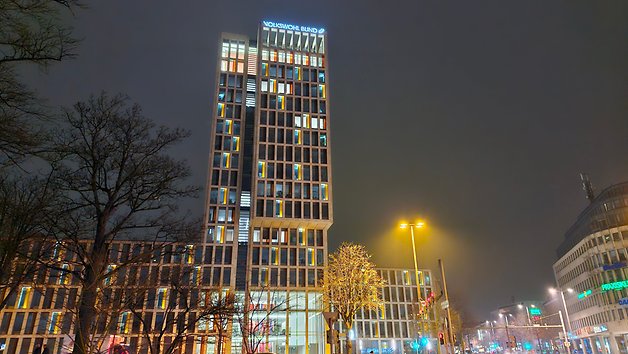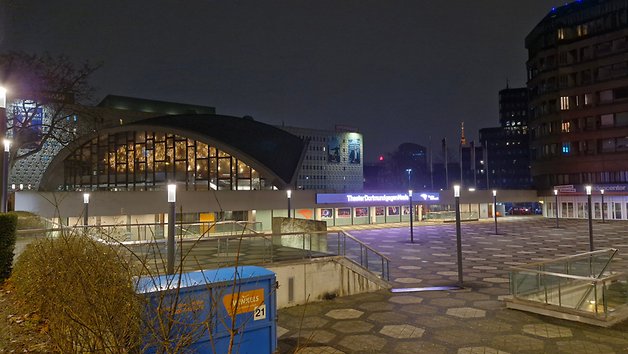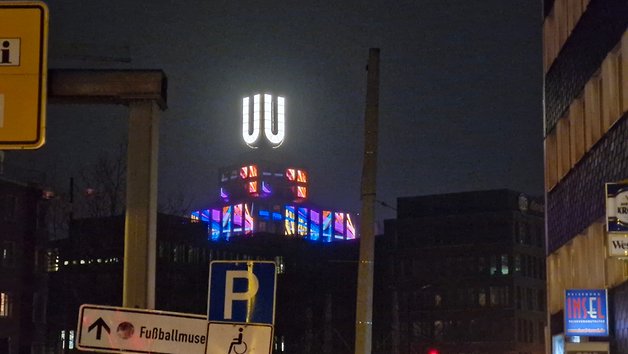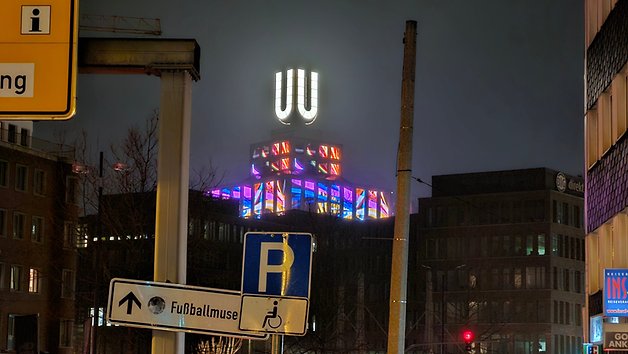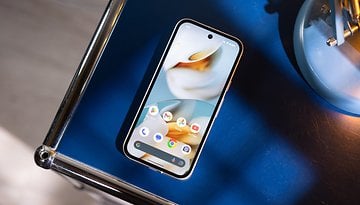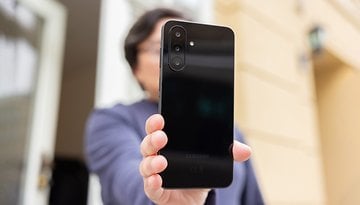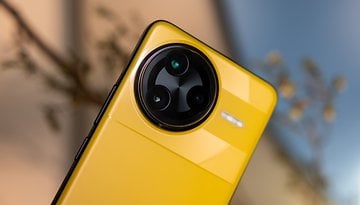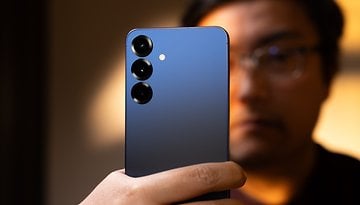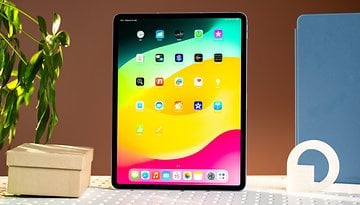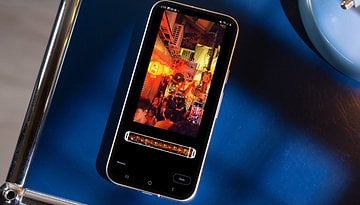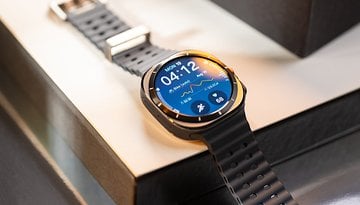Samsung Galaxy S23 FE Review: The Best Phone Everyone Shouldn't Buy
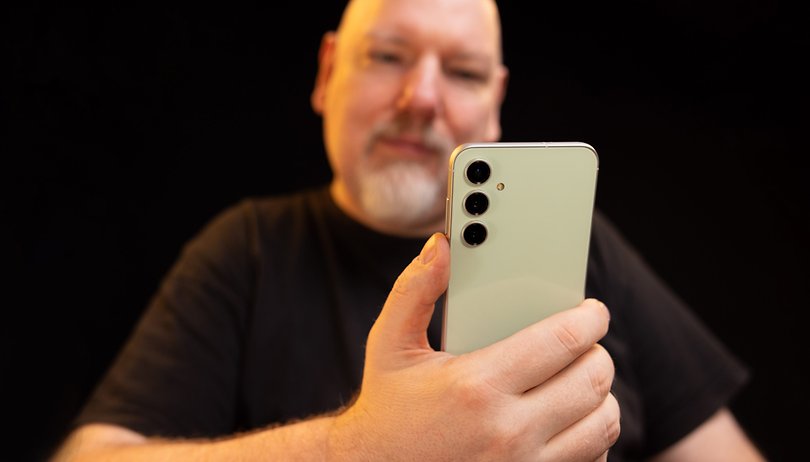

Samsung unveiled its latest "Fan Edition" hardware in early October 2023, which includes the Samsung Galaxy S23 FE that went on sale on December 15 last year. This 6.4-inch smartphone, powered by the Exynos 2200, is positioned by the company as a bridge between its A- and S-Class offerings. It aims to provide users with a premium smartphone experience at an affordable price. Do you think an asking price of $599.99 for this smartphone is worth it? We'll find out in our detailed review and also talk about the elephant in the room.
Good
- Great workmanship
- Great AMOLED display
- Versatile camera
- Android 14 with One UI 6.0
- Solid performance
Bad
- Too expensive and released too late
- Too much internal competition
- Thick bezels
- Only average battery life
- No charger included
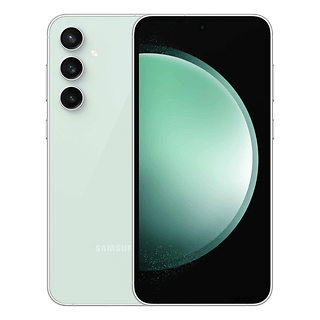
In a nutshell
Samsung actually does a lot right: A form factor that is between the 6.1-inch Galaxy S23 (review) and the 6.6-inch Galaxy S23+ (review ) with 6.4 inches. An Exynos 2200, which we confirmed in the long-term review of the Galaxy S22 (review) that its performance is easily sufficient for 2023. There is also a triple camera including a real telephoto sensor, a 4,500 mAh battery, and Android 14 with the popular One Ui interface.
Samsung packs all that into a smartphone that clearly feels more like premium than mid-range. And yet, I am ambivalent because I don't understand who the device was made for. We're talking about a phone that went on sale in the USA in October 2023 for $599.99 and only appeared elsewhere around the world in December 2023 at a significantly higher price point after currency conversion.
What does this mean? It is actually more expensive upon its release than the street price of the clearly superior Galaxy S23 in different parts of Europe. In the US, the S23 still retails for $100 more than the S23 FE. It is those who live in Europe who will suffer from the strange pricing mechanism than folks who live Stateside who always seem to get the better deal.
Design and display
The Samsung Galaxy S23 FE offers us a 6.4-inch, convincing AMOLED screen in a very high-quality casing, which, however, turns out a bit too bulky considering the display size.
Pros:
- Flagship design.
- Great workmanship.
- IP68 certification.
- Usual fantastic AMOLED display.
Cons:
- A little too bulky.
- Slightly wider display bezels than the other S23 series.
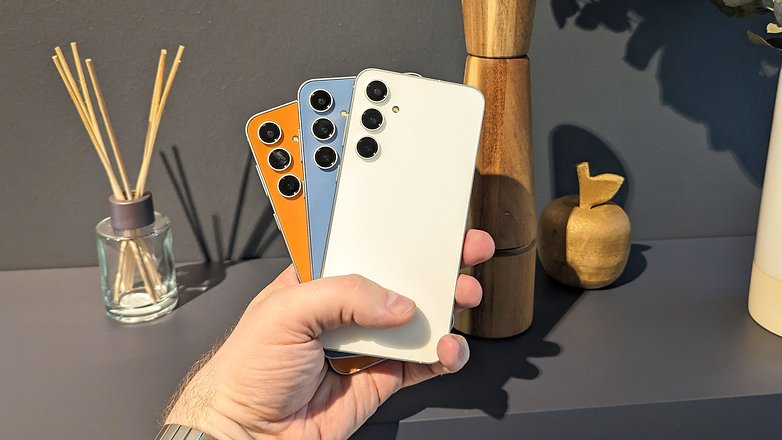
At 76.5 x 158.0 x 8.2 mm and 209 grams in weight, the Galaxy S23 FE is surprisingly a bit longer, wider, taller, and heavier than the 6.6-inch Galaxy S23+ despite its 6.4-inch display. However, this does not really affect the handling negatively; only the slightly wider display edges are noticeable. Nevertheless, I find that this design robs the S23 FE of some of the premium feel it undoubtedly exudes.
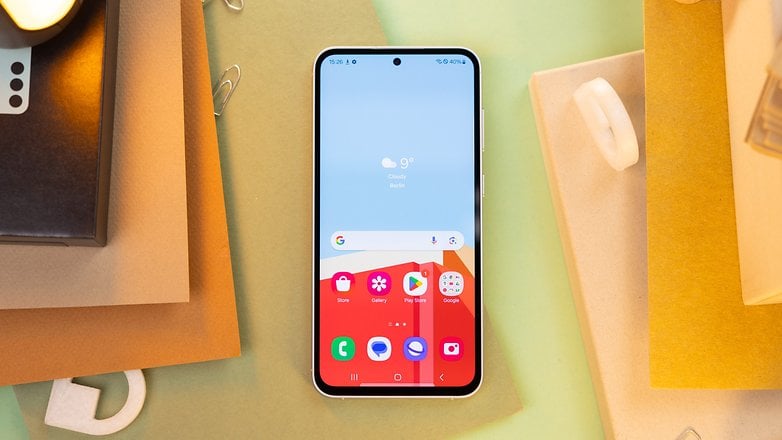
Samsung also wants to position the S23 FE with its 6.4-inch display between the S23 (6.1-inch) and the S23+ (6.6-inch) in terms of size. Of course, this doesn't work so well when the S23+ offers a significantly larger display without being larger overall compared to the bulky S23 FE.
As expected, Samsung does not show any weakness in terms of material and build quality and uses glass and metal instead of plastic. By the way, Samsung pointed out that the bar has been raised even higher when it comes to recycled content. A look at the back compensates for the thicker display edges. There, we will find the design adapted from the S-series with the floating camera elements. Samsung also released many colors: The four "normal" colors are Mint, Graphite, Cream, and Purple which are joined by Tangerine and Indigo as online exclusive colors in the Samsung store.
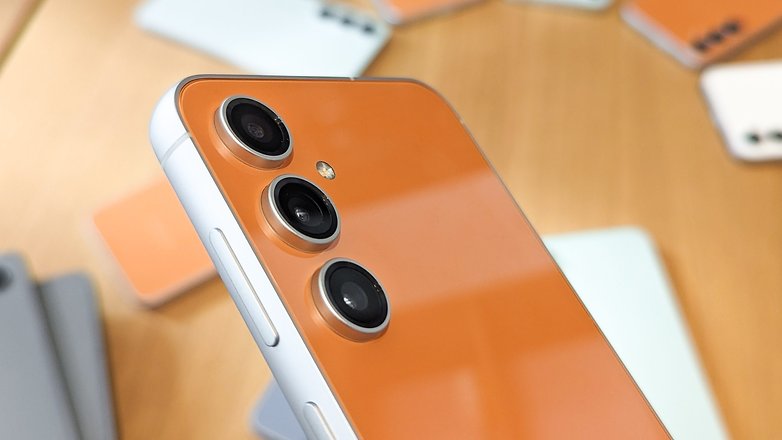
Tangerine, in particular, looks striking to me, though I'm not sure if I'd want to walk around with an orange smartphone. However, I noticed the darker colors are clearly more susceptible to fingerprints than Tangerine.
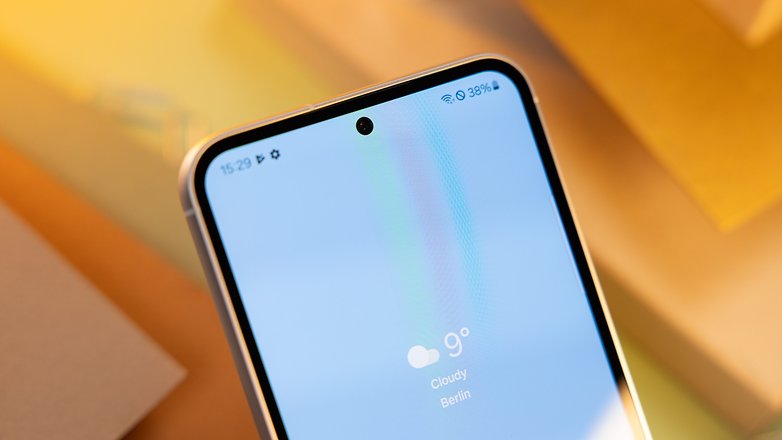
Looking at the display is fun as usual, as it always has been with Samsung: Crisp colors, high contrasts, and deep blacks are delivered by the South Koreans with this FHD+ panel. The peak brightness of 1,450 nits is slightly lower than in the other S23 models, and the refresh rate varies between 60 and 120 Hz. Well, you will need to make some sacrifices if you want to deliver a premium smartphone at a lower price point.
Incidentally, Samsung uses Corning Gorilla Glass 5 on the Galaxy S23 FE to protect the device from damage in the event of a drop. This is an obvious downgrade compared to the Gorilla Glass Victus 2 in the S23. Apart from this and the thick bezels, Samsung clearly positioned this handset to be in the premium category in terms of design and display.
Samsung Galaxy S23 FE software
Samsung delivers the Galaxy S23 FE with Android 14 and Samsung's very own One UI 6.0 skin. Everything has been predictable so far. You get exactly what Samsung delivers in terms of software: A great Android skin, Samsung's exemplary update policy, and a bunch of bloatware.
Pros:
- Android 14 + One UI 6.0 instead of the initially installed Android 13 + One UI 5.1 combo.
- DeX support.
- Long-term software support.
Cons:
- Too much pre-installed software.
Let's not waste too much time here because you know both Android 14 and Samsung's own skin known as One UI. If you are still looking for more information, the detailed nextpit articles are linked in this section. If you're already using One UI, you'll quickly find your way around and probably curse the mountain of pre-installed apps.
- Worth reading: Master your Galaxy phone with these 41 One UI tips
When the Galaxy S23 FE was launched in October 2023, it was still running on One UI 5.1 which was based on Android 13. That was fine because Android 14 was recently launched. However, the initially planned release date for certain countries outside of the US in spring 2024 caused me some to raise an eyebrow. First, the release date in selected regions was delayed, and what if Android 13 came with it? That would have been a huge disadvantage.
Fortunately, it didn't turn out that way. Samsung launched the device in Europe "as early as" mid-December and it came with Android 14 right out of the box. This is another plus point for the updates: Samsung's update policy has been exemplary for years, and this means you will receive four major Android updates and have up to five years of security patches.
However, Samsung is no longer the market leader in this aspect: Google guarantees updates all the way to Android 21 for the Google Pixel 8 and Pixel 8 Pro, and the Fairphone 5 (review), which boasts five Android updates and eight years of security patches! Samsung has not remained idle though, having taken a big step forward as the new Galaxy S24 series already offers a guaranteed seven years of Android updates and security patches!
One more positive aspect to take note: The Samsung Galaxy S23 FE also comes with DeX support, which transforms your Galaxy phone into a fully-fledged computer. If you were wondering whether Galaxy AI is being planned for the Galaxy S23 FE, the model has not appeared in the current list of Galaxy phones that will feature Galaxy AI support.
Samsung Galaxy S23 FE performance
The European model of the Galaxy S23 FE is powered by the Exynos 2200 SoC from 2022, which is undoubtedly a solid SoC, but also inferior to the Snapdragon 8 Gen 2 that powers the S23 series. You also get 8 GB of RAM and 128 or 256 GB of non-expandable storage, as well as Wi-Fi 6E support.
Pros:
- Older but still a capable processor.
- No excessive heat development.
Cons:
- A little too bulky
- Slightly wider bezels than the rest of the S23 series.
First of all, I think the Exynos 2200 is better than what its reputation is. So, if Samsung sells this component in the 2023 Fan Edition, which was still in the 2022 flagships, no one has to really worry about the performance.
We know from the Exynos 2200 that it heats up, but the performance is reliably throttled in this case. You will also be able to play more demanding games without problems, despite the performance losses. According to Samsung, the heat development of the Exynos 2200 is now under control and I did indeed notice a noticeably higher temperature during extensive gaming and benchmark tests, but not to an unusual extent.
In the benchmark tests, I noticed the results were quite volatile, which suggested performance has been rather aggressively throttled. This probably probably explains why the performance in the 3DMark Wild Life stress test was so much better than in the identical SoC in the Galaxy S22 (review). In addition to these two models, we also included the Galaxy S23 (review) and the Galaxy A54 (review) in our benchmark comparison. In other words, we are comparing it to the rest of the internal competition.
| Galaxy S23 FE (Exynos 2200) |
Galaxy S22 (Exynos 2200) |
Galaxy S23 (Snapdragon 8 Gen 2) |
Galaxy A54 (Exynos 1380) |
|
|---|---|---|---|---|
| 3DMark Wild Life |
|
|
|
|
| 3DMark Wild Life stress test |
|
|
|
|
| 3DMark Wild Life Extreme Stress Test |
|
|
|
|
| Geekbench 5/6 |
|
|
|
|
| PCMark Work 3.0 |
|
|
|
|
It is also worth mentioning that there are two storage variants with 128/256 GB in addition to 8 GB of RAM, which puts you on par with the Galaxy S23. The connectivity is also identical with Wi-Fi 6E, 5G support, Bluetooth 5.3, and NFC.
In terms of performance, the S23 FE falls somewhere between the S22 and the S23. What does that mean? Clearly, the Galaxy S23 FE has various weak points, but a slightly outdated Exynos 2200 is certainly not one of them. Samsung's mid-range category was easily outperformed by the S23 FE, so Samsung's idea of using the FE as a link between the mid-range and flagship devices really worked out well.
Samsung Galaxy S23 FE camera
There is a triple camera, which is led by a 50 MP sensor with f/1.8 aperture, plus a 12 MP ultra-wide-angle shooter and finally a telephoto camera with 8 MP and 3x optical zoom. Samsung installs a 10 MP cam in the front for selfies
Pros:
- Very good main camera.
- 3x optical zoom.
- Useful night photos with the main camera.
- 50 MP photos can be saved in RAW format.
Cons:
- Quality of ultra-wide angle photos drops sharply at night.
There's not much to criticize about the camera, period! Yes, the triple-camera setup doesn't quite come close to the S23, but overall, Samsung delivers a best-in-class performance that is absolutely worthy of its price. Here is the camera lineup at a glance:
- Main camera: 50 MP with f/1.8 aperture and 10 x digital zoom.
- Ultra-wide angle: 12 MP with f/2.2 aperture.
- Telephoto camera: 8 MP with f/2.4 aperture, 1/4.4 inch sensor and 3x optical zoom.
- Selfie: 10 MP with f/2.4 aperture.
All of it looks good on paper and basically performs just as well in reality, even if the number of MPs has been trimmed in certain areas compared to the S23.
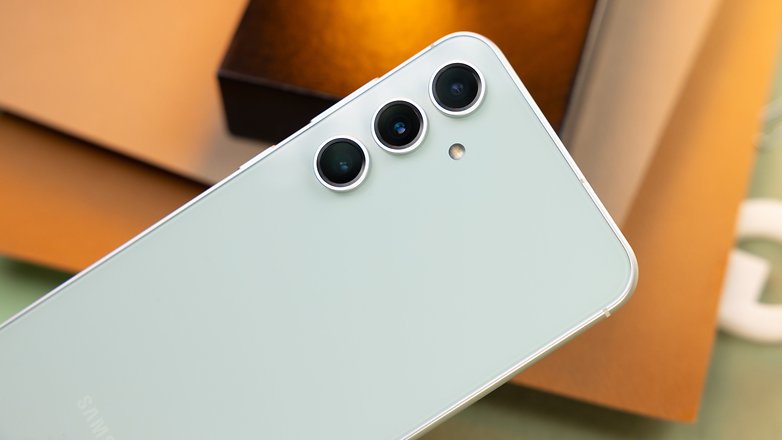
The main camera is beyond reproach! Strong dynamics, accurate but not overly exaggerated colors, and very rich in detail. All these make for great photos during the day. The camera is also great fun for night shots. The Night Mode brightens up the scenery but still makes colors look realistic and without any exaggerated image noise.
The 12 MP shooter, which is responsible for the ultra-wide angle images, is somewhat different. It also delivered well during the day, although I noticed slight color differences compared to the main sensor. At night, however, the ultra-wide angle camera experiences a loss in image quality. There is plenty of noise and details at the edges become blurred. Overall, however, this is still a decent performer, especially when you compare it to other competitors within the same price range.
The sensor fun is rounded off by the telephoto camera, which offers a triple optical zoom. If you use this zoom, the results look really good. I can even get away with the 10x digital zoom at times. Anything beyond that, however, becomes rather ugly. I've put a picture with 30x zoom in the gallery for you to see what I mean.
Finally, the 10 MP selfie camera is pretty unspectacular. It does what it's supposed to do and I like taking selfies both with and without portrait mode, without triggering any bouts of narcissism.
Overall, I would say the cameras are a clear highlight of the S23 FE and that even somewhat ambitious photography enthusiasts will be able to have fun with it. You can also capture 50 MP photos in Pro mode and save them in RAW mode. Whether you will do this very often with 128 GB of memory, however, is another matter. By the way, you can also shoot 8K videos, albeit at 24 fps instead of the 30 fps in the S23.
Battery and charging speed
The battery is also "nothing new" in this review. Although the battery capacity is pleasantly large at 4,500 mAh, it also has a less energy-efficient SoC than its S23 siblings. We know the rest of the drill: there is no charger included, quick charging is limited to just 25 W, and it includes inductive charging (reverse charging as well).
Pros:
- Quite a large—4,500 mAh battery capacity.
- Wireless charging (also reverse charging).
Cons:
- Antiquated fast charging at only 25 W.
- No charger included.
Compared to the battery of the S23 (3,900 mAh), the Galaxy S23 FE's battery is monstrous at 4,500 mAh. However, in the age when every $250 handset comes with a 5,000 mAh battery, we shouldn't tout Samsung's offering as an achievement. What is more important to note is how the Exynos 2200 is, unfortunately, more energy-hungry than the Snapdragon SoC in the S23.
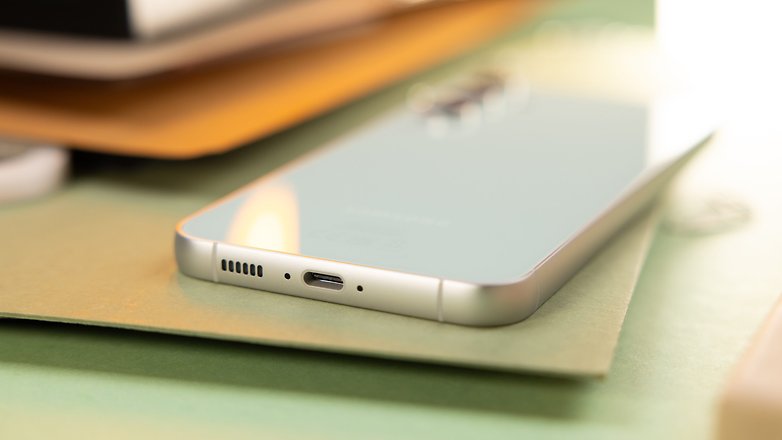
Unfortunately, the processor and presumably also the larger display have an impact on the battery life: While the 3,900 mAh cell managed to achieve 13 hours and 44 minutes in the PCMark battery test, the S23 FE, also with flight mode enabled and a dimmed display, already ran out of juice within 12 hours and 18 minutes. Of course, in the optimal use case scenario, you grab the phone, use it all day, and don't have to find a power socket again until the next lunchtime.
Nevertheless, this is average at best and even worse compared to its other internal competitors. We don't even want to look at non-Samsung handsets, considering how the 25 W charging speed is positively archaic compared to what Chinese phone manufacturers offer, making charging speeds that are often well over 100 W pedestrian. It took me just under 75 minutes to charge from 0 to 100 percent.
Since all good things come in threes, we need to add one more thing to the slow charging speed and the acceptable battery life: This is easy to identify as Samsung does not include a charger in the box yet again. Okay, if you think this is a smart move in terms of sustainability, it is a nice decision by Samsung. I would like to be able to decide for myself whether I want to include the charger as part of my purchase when ordering.
Samsung Galaxy S23 FE technical specifications
| Technical specifications | |
|---|---|
| Device | |
| Image |
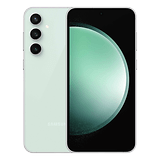
|
| Display | 6.4" dynamic AMOLED display 2,340 x 1,080 px (FHD+, 402 ppi) 120 Hz refresh rate |
| SoC | Samsung Exynos 2200 (SSE9925, 4 nm) |
| RAM | 8 GB RAM |
| Storage | 128 GB 256 GB |
| Software | One UI 6.0 based on Android 14 |
| Expandable memory | ❌ |
| Main camera | 50 MP | f/1.8 aperture | 1/1.56" | 10 x digital zoom |
| Ultra wide-angle camera | 12 MP | f/2.2 aperture | 1/3.2" |
| Telephoto camera | 8 MP | f/2.4 aperture | 1/4.4 inch | 3x optical zoom |
| Selfie | 10 MP | f/2.4 aperture | 1/3.24" |
| Battery | 4,500 mAh |
| Charging via cable | 25 watts |
| Wireless charging (Qi) | ✔, including wireless reverse charging |
| Robustness | IP68 |
| Connectivity | 5G, LTE, Wi-Fi 6E, Wi-Fi Direct, Bluetooth 5.3, NFC |
| Colors | Mint, Graphite, Cream, Purple and Samsung-exclusive Tangerine and Indigo |
| Dimensions and weight | 76.5 X 158.0 X 8.2 mm, 209 grams |
Final verdict
Technically, Samsung delivered a really great smartphone in a very confident and experienced manner. However, there is the elephant in the room: other devices from the company might cannibalize its sales!
It features the expected great performance, a wonderful display, a well-balanced camera line-up, and a high-quality design.
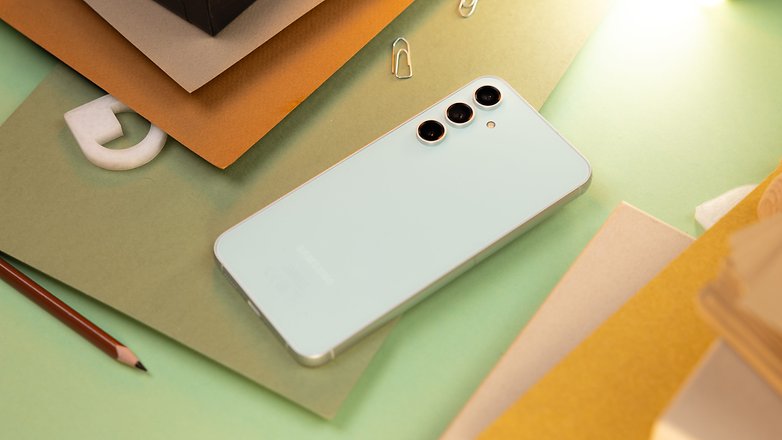
The battery, on the other hand, is just bang average. It is too expensive and the bezels are too fat. I also lack imagination when it comes to arguments for the S23 FE and against the other Samsung phones. "New display size", yes, that's wonderful, but it doesn't help me if the 6.6-inch Galaxy S23+ has even smaller dimensions with a larger display. What other sales argument is Samsung putting forward to make its case?
- What other handsets does Samsung offer? These are currently the best Samsung smartphones
Unfortunately, it also doesn't help when the device is launched almost a year after the S23 and the usual power of depreciation has made the 2023 flagship mode affordable since. Do I really want to choose the S23 FE over the S23 because of an additional year of software support when almost everything else speaks in favor of the older smartphone with a minimal price difference?
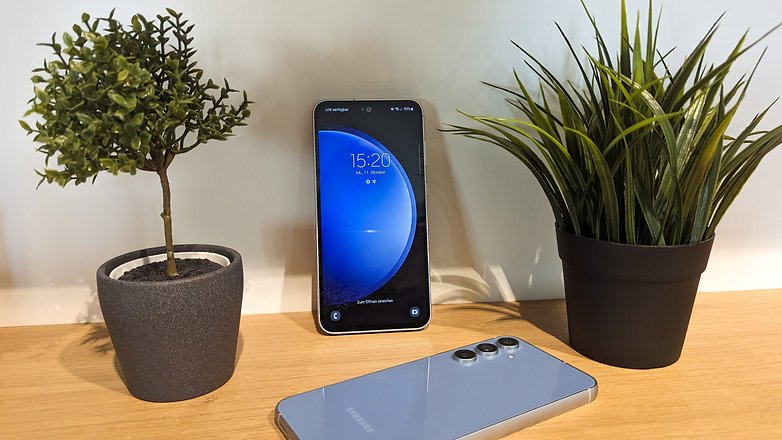
I could easily overlook the weight and the thick bezels. I also think it's both a beautiful and powerful smartphone if you were to judge it on its own merits. However, Samsung made a big mistake here (again): the timing of its release is simply preposterous.
The really excellent Galaxy S23 FE comes a little too late at a rather hefty price tag (relatively speaking). All Samsung can do to save it now is to offer a significant price drop. I think you can buy this little gem here if it is priced at less than $500 without having to think too much. However, by the time that happens, the S23 will surely have become even cheaper. To keep a long story short: The Galaxy S23 FE is a really good smartphone, but please don't buy it! It simply won't happen as long as you can get an S23 at a similar price (or less)!





